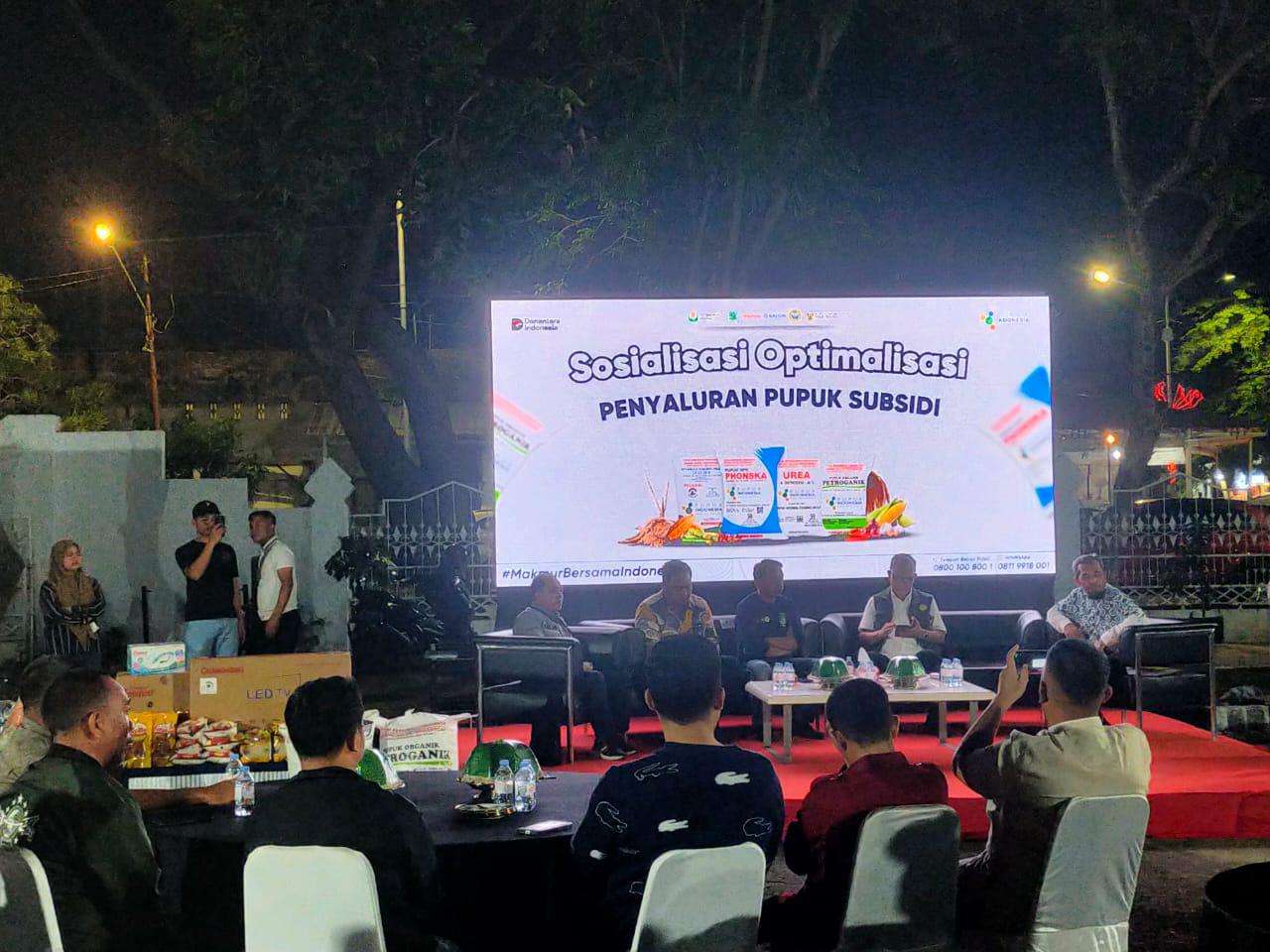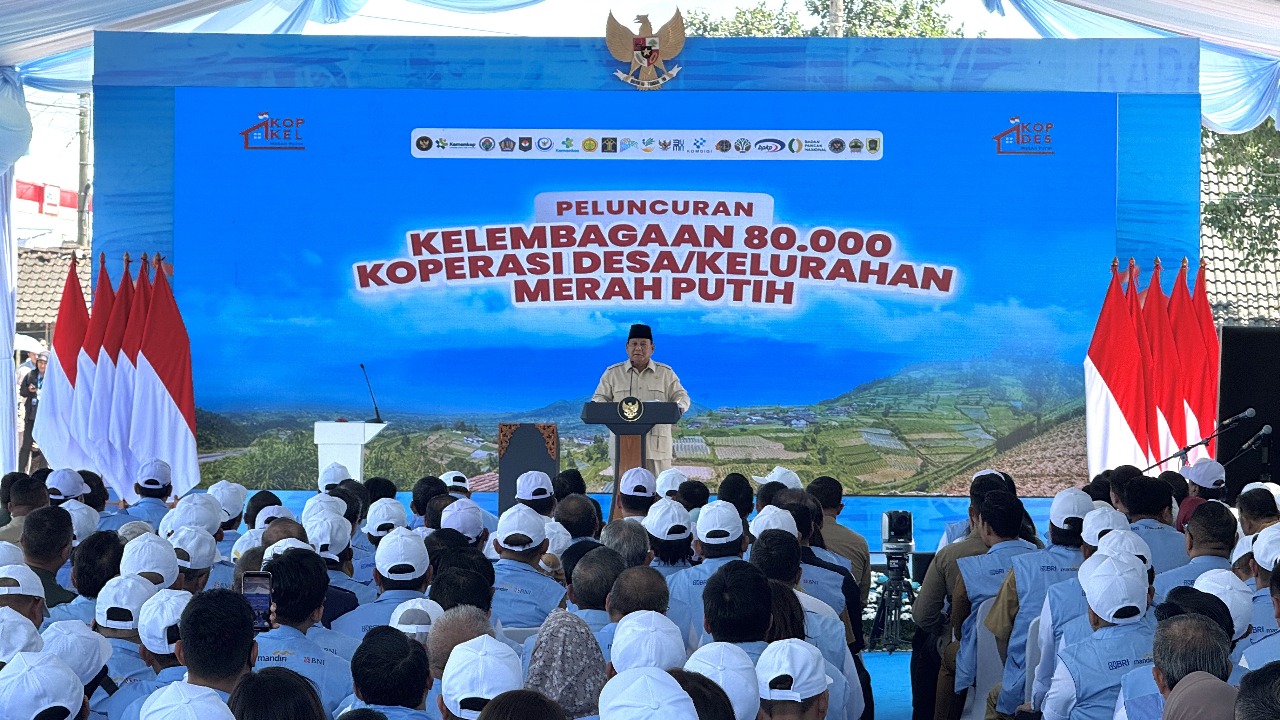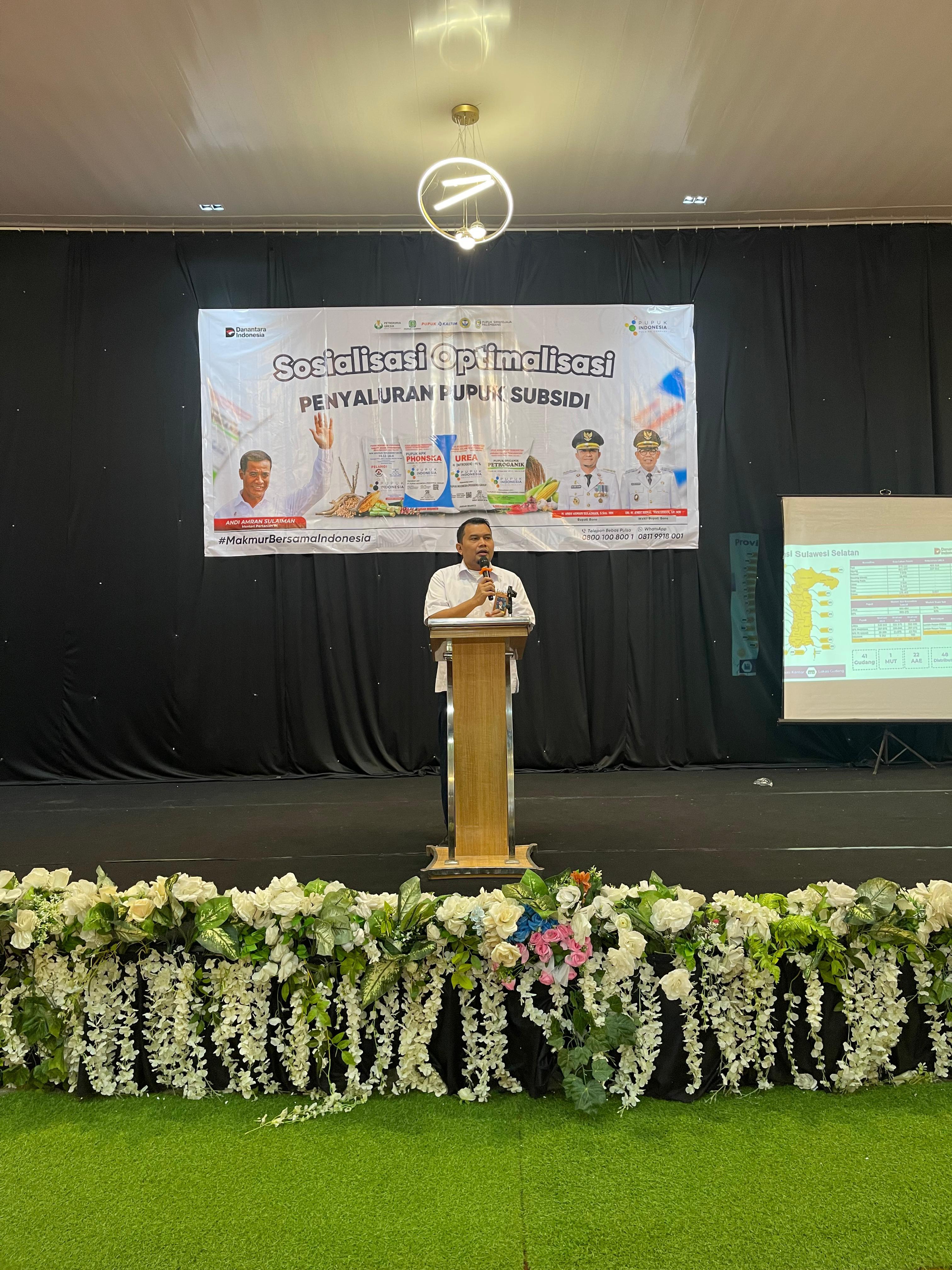Petani Durian Banyuwangi Tertarik Gabung Makmur Pupuk Indonesia
-thumb.jpg)
BANYUWANGI – Petani durian Desa Songgon, Kabupaten Banyuwangi yang tergabung pada kelompok tani nogo dino tertarik untuk bergabung program Makmur PT Pupuk Indonesia (Persero). Hal ini disampaikan oleh para petani saat berdialog langsung dengan Direktur Utama Pupuk Indonesia, Rahmad Pribadi, Jumat (8/9/2023).
Pada kesempatan ini, Rahmad menceritakan bahwa program yang diluncurkan Menteri BUMN Erick Thohir pada 2021 dapat menghubungkan petani dengan ekosistem pertanian yang lengkap dengan tujuan meningkatkan produktivitas dan pendapatan pertanian.
“Melalui program Makmur ini kita Pupuk Indonesia memberikan kepastian pupuk khususnya nonsubsidi, kemudahan bagi petani mengakses pembiayaan, jaminan asuransi, hingga pendampingan pertanian dari agronomis, serta yang terpenting mendapatkan kemudahan akses ke pasar,” demikian ungkap Rahmad.
Adapun ekosistem pertanian yang dapat dimanfaatkan oleh petani pada program Makmur mulai dari project leader, lembaga keuangan seperti perbankan, teknologi pertanian, asuransi, agro input, pemerintah daerah (pemda), dan offtaker.
Program Makmur Pupuk Indonesia ini pun disambut baik oleh petani durian, salah satunya Feri yang merupakan petani durian di Desa Songgon, Kabupaten Banyuwangi, Jawa Timur. Menurut dia, program yang memiliki makna Mari Kita Majukan Usaha Rakyat ini bisa dimanfaatkan oleh para petani muda dalam meningkatkan produktivitas dan pendapatan pertanian. “Saya tertarik dengan program Makmur karena banyak manfaat yang bisa kami rasakan. Melalui program Makmur juga kami mendapat banyak manfaat salah satunya kepastian pupuk sehingga petani itu bisa makmur dan Sejahtera,” kata Feri.
Pada kesempatan yang sama, Ketua Kelompok Tani Nogo Dino, Winarno menyatakan bahwa program Makmur menjadi solusi bagi petani untuk mendapatkan pupuk. Pasalnya, komoditi durian saat ini tidak lagi menjadi komoditi yang mendapat alokasi subsidi pupuk. Berdasarkan Peraturan Menteri Pertanian (Permentan) Nomor 10 Tahun 2022, Pemerintah hanya menetapkan sembilan komoditi yang berhak menerima subsidi pupuk, yaitu padi, jagung, kedelai, cabai, bawang merah, bawang putih, kopi, kakao, dan tebu rakyat.
Selain itu, Winarno juga mengaku bahwa produktivitas tanaman duriannya mengalami peningkatan kualitas usai menggunakan pupuk jenis NPK yaitu Phonska Plus yang merupakan produk PT Petrokimia Gresik yang merupakan anak Perusahaan Pupuk Indonesia. Dia menceritakan bahwa pohon durian sejatinya akan tetap berbuah meski tidak diberi pupuk. “Pohon pasti berbuah tapi belum maksimal karena tidak diberi makan pupuk. Sebelum menggunakan pupuk, kualitas buah saat panen ada yang manis ada yang pahit. Melalui program Makmur, saya ingin pendampingan untuk memaksimalkan produktivitas dan kualitas,” ungkap Winarno.
Menanggapi hal tersebut, Rahmad mengajak petani durian di Desa Songgon untuk bergabung program Makmur. Pupuk Indonesia akan melakukan demonstration plot (demplot) komoditi durian sebagai untuk membuktikan terjadinya peningkatan kualitas buah, produktivitas, dan pendapatan pertanian.
“Jika program Makmur bermanfaat untuk bapak-bapak, maka saya ajak untuk bergabung, tidak ada biaya untuk bergabung, apalagi program ini menggunakan pupuk nonsubsidi sehingga tidak lagi bergantung pada pupuk subsidi, karena program Makmur tujuannya membuat Indonesia menjadi makmur, sehingga bisa Makmur Bersama Indonesia,” tutup Rahmad.
Dapat diketahui, program Makmur sendiri telah diimplementasikan di atas lahan seluas 6.341 hektar (ha) di beberapa wilayah di Kabupaten Banyuwangi dengan project leader PT Petrokimia Gresik dan PT Pupuk Kalimantan Timur. Sebagai contoh project Banyuwangi Sumber Hidup dengan komoditas padi berhasil mengalami peningkatan produktivitas menjadi 7,3 ton per ha dari yang sebelumnya 5,4 ton per ha.







